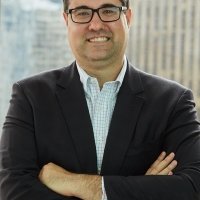Is Rio's Tough Love Strategy Against Violence Working?
Three years after the first Pacifying Police Unit (UPP) took control in the favela Dona Marta in Rio de Janeiro, after expelled drug dealers that ran the place for years, a comprehensive survey examined the impact of the government strategy to reduce crime and violence and bring peace and services to the affected areas. The findings were presented on December 13, 2011 at a seminar hosted by the Brazil Institute. Conducted by Maurício Moura, visiting scholar at the George Washington University, the survey’s purpose was the gage the opinion of the people supposed to benefit from the government intervention. The study confirmed the overall positive reaction the UPPs have generated among the affected population, but also shed light on the challenges that the residents of these communities face, from lack of public services to employment, which must be overcome to secure its sustainability in the long run.
From August 22 to September 2, 2011, Moura and his team interviewed 3,816 residents from 17 communities where UPPs were established. The purpose of the survey, commissioned by the Secretary of Labor and Employment, was to draw a picture of the communities, to be used as a tool for public policy decision-making. The study covered not only safety and demographic issues but also poverty, inequality, entrepreneurship, financial services, community problems, social programs, education, individual resources, and more.
Read the complete News Digest, to view the presenter's presentations, click on the Event Documents section below
Speakers


Hosted By

Brazil Institute
The Brazil Institute—the only country-specific policy institution focused on Brazil in Washington—aims to deepen understanding of Brazil’s complex landscape and strengthen relations between Brazilian and US institutions across all sectors. Read more


Latin America Program
The Wilson Center’s prestigious Latin America Program provides non-partisan expertise to a broad community of decision makers in the United States and Latin America on critical policy issues facing the Hemisphere. The Program provides insightful and actionable research for policymakers, private sector leaders, journalists, and public intellectuals in the United States and Latin America. To bridge the gap between scholarship and policy action, it fosters new inquiry, sponsors high-level public and private meetings among multiple stakeholders, and explores policy options to improve outcomes for citizens throughout the Americas. Drawing on the Wilson Center’s strength as the nation’s key non-partisan policy forum, the Program serves as a trusted source of analysis and a vital point of contact between the worlds of scholarship and action. Read more


Urban Sustainability Laboratory
Since 1991, the Urban Sustainability Laboratory has advanced solutions to urban challenges—such as poverty, exclusion, insecurity, and environmental degradation—by promoting evidence-based research to support sustainable, equitable and peaceful cities. Read more
